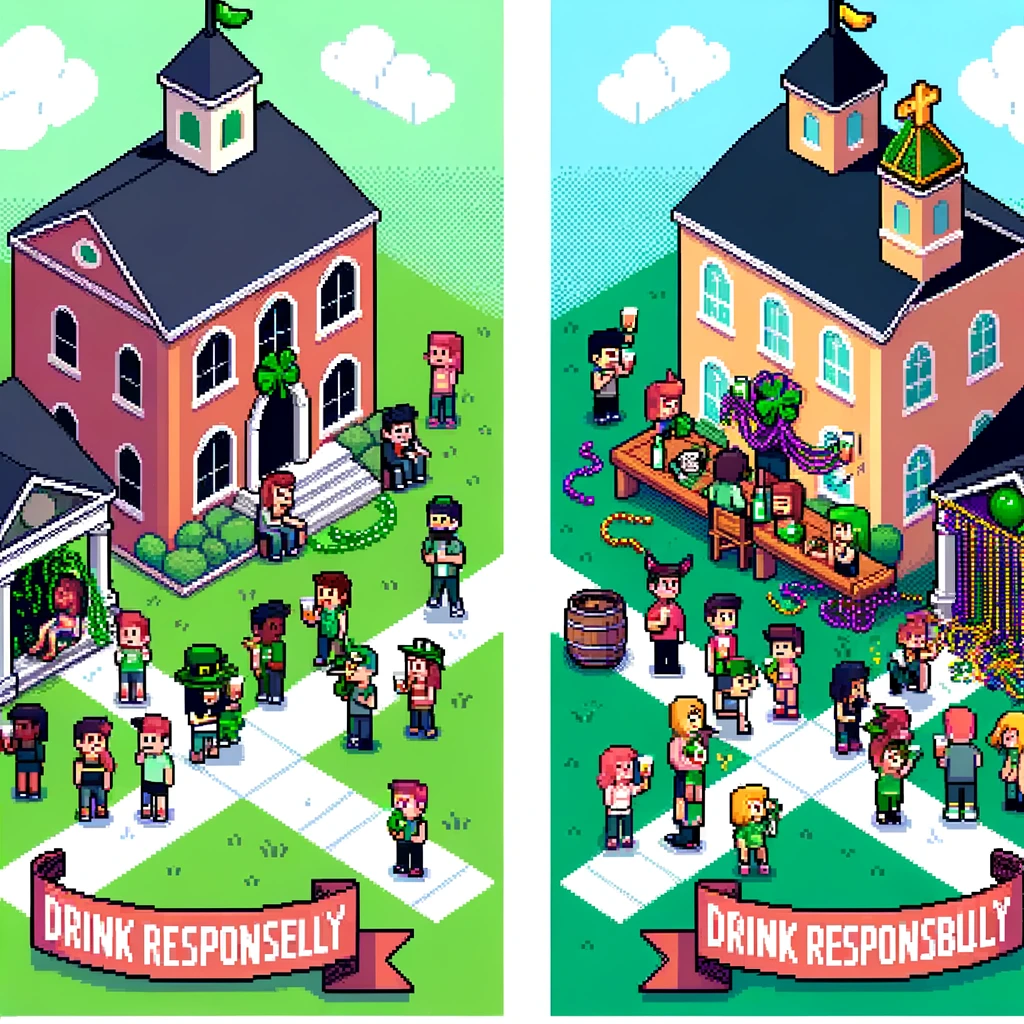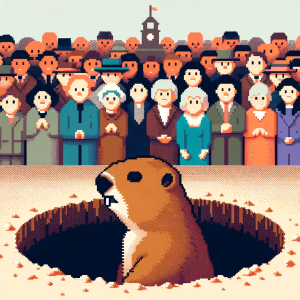
Celebrating With Caution: How Campus Traditions Shape Drinking Behaviors
It’s almost St. Patrick’s Day, and for a subset of the population, that means drinking. Heck, some relative figured out my wife was pregnant with our first child when she declined a beer on St. Patrick’s Day.
The Impact of Campus Traditions and Event-Specific Drinking, offers valuable insights that go beyond the typical narratives of college drinking. Let’s dive into what this means for students, educators, and anyone interested in the dynamics of campus life.
Understanding the Research
This study took a deep dive into how specific events, like St. Patrick’s Day and Mardi Gras, are celebrated differently at two distinct campuses, and how these celebrations impact students’ drinking habits. Researchers surveyed 570 undergraduate students from both campuses, asking them about their expectations of peer drinking, their own drinking intentions, and their actual alcohol consumption during these events.
The findings were intriguing: students at a campus with strong St. Patrick’s Day traditions reported higher intentions to drink and actual alcohol consumption during the holiday compared to a campus with prominent Mardi Gras traditions, and vice versa.
Campus Culture and Drinking
The Influence of Tradition
The study highlights the powerful influence of campus culture and tradition on student behavior. For instance, at a campus where St. Patrick’s Day is a major event, students not only intended to drink more but also followed through with higher alcohol consumption. This pattern was mirrored at the other campus during Mardi Gras.
Perception Vs. Reality
Interestingly, the study found that students’ perceptions of how much their peers would drink heavily influenced their own drinking behavior. If a holiday is perceived as a big drinking day on campus, students are more likely to drink more themselves.
Beyond the Events
While the focus was on specific events, these findings have broader implications. They suggest that campus traditions and the surrounding hype can significantly shape students’ behaviors, not just in terms of drinking but potentially in other areas as well.
A Broader Perspective
Rethinking Campus Events
This study calls for a reevaluation of how we approach and manage campus events. Understanding the influence of campus culture can help in planning safer, more inclusive events that don’t inadvertently encourage excessive drinking.
Education and Awareness
Educating students about the impact of perceived norms could be a key step in changing behaviors. If students understand that their expectations might not match reality, they might make different choices.
Moving Forward
For Students
If you’re a student, this research invites you to reflect on how campus traditions influence your choices. It’s an opportunity to think critically about your actions and their impacts.
For Educators and Administrators
For those in charge of shaping campus policies, this study offers valuable insights. It underscores the need for event-specific strategies that take into account the unique culture of each campus.
For Everyone
At its core, this research is a reminder of the subtle yet significant ways in which our environment shapes our behavior. It’s a call to be more mindful of the traditions we celebrate and how they impact the community.
Conclusion
“The Impact of Campus Traditions and Event-Specific Drinking” is more than just a study; it’s a conversation starter about the role of tradition in shaping student life. It invites us all to think about how we can create a campus culture that promotes healthy choices and inclusive celebrations.
Explore, Learn, and Grow with Science:
Step into the realm of discovery with ‘This Week in Science’! Tailored for both educators and science enthusiasts, our newsletter offers a weekly exploration of groundbreaking research and inspiring stories from the scientific community. By subscribing, you’re not just reading – you’re expanding your horizons in teaching and learning. Join us for free and start a journey that reshapes your engagement with science, fostering a more informed and passionate approach.



